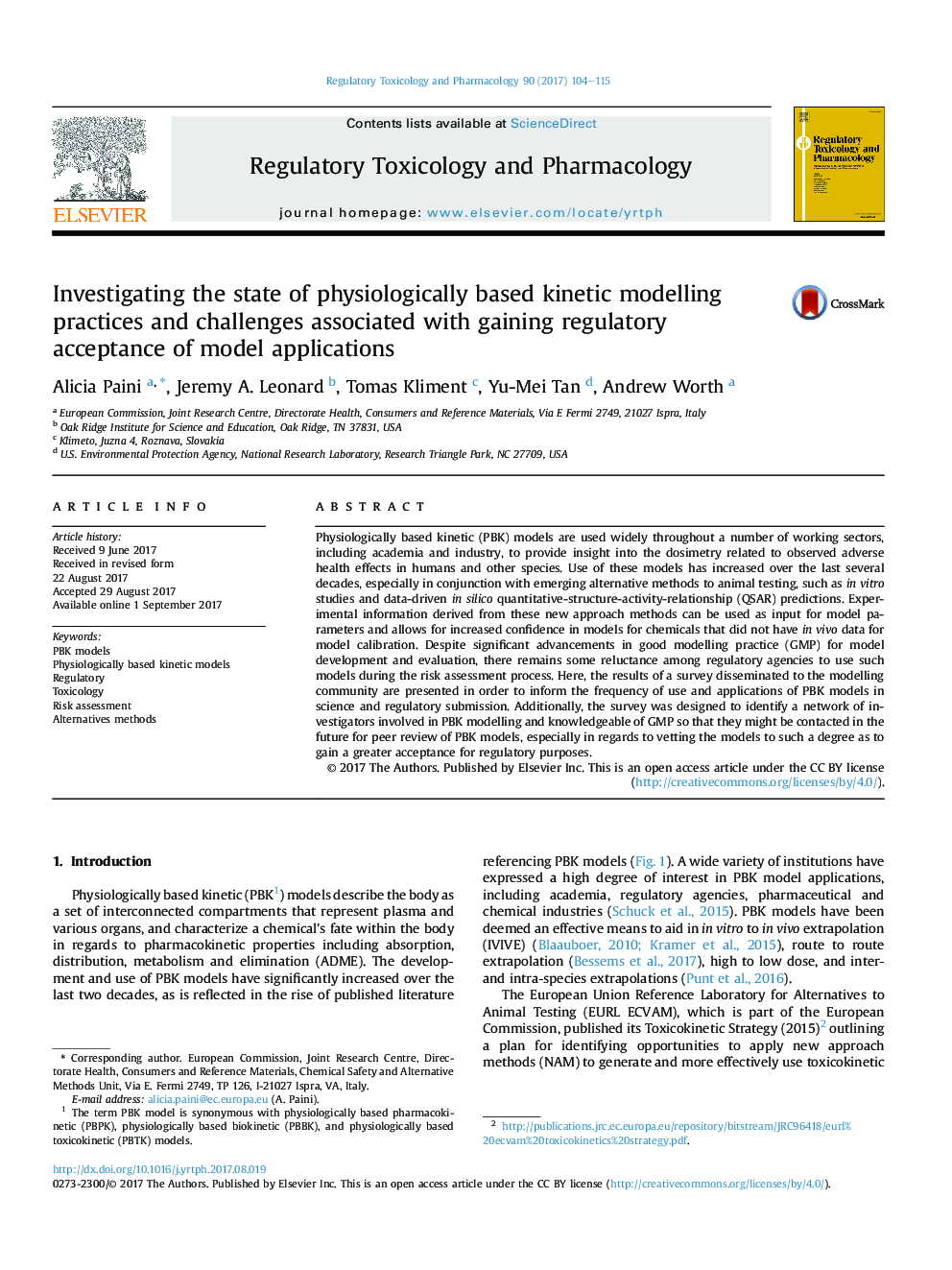| کد مقاله | کد نشریه | سال انتشار | مقاله انگلیسی | نسخه تمام متن |
|---|---|---|---|---|
| 5561101 | 1562113 | 2017 | 12 صفحه PDF | دانلود رایگان |
- Physiologically Based kinetic (PBK) models are used widely in academia, industry, and government.
- Good modelling practice (GMP) for model development and evaluation continues to expand.
- Further guidance for establishing GMP is called for.
- There remains some reluctance among regulatory agencies to use PBK models.
- The next generation of PBK models could be developed using only data from in vitro and in silico methods.
Physiologically based kinetic (PBK) models are used widely throughout a number of working sectors, including academia and industry, to provide insight into the dosimetry related to observed adverse health effects in humans and other species. Use of these models has increased over the last several decades, especially in conjunction with emerging alternative methods to animal testing, such as in vitro studies and data-driven in silico quantitative-structure-activity-relationship (QSAR) predictions. Experimental information derived from these new approach methods can be used as input for model parameters and allows for increased confidence in models for chemicals that did not have in vivo data for model calibration. Despite significant advancements in good modelling practice (GMP) for model development and evaluation, there remains some reluctance among regulatory agencies to use such models during the risk assessment process. Here, the results of a survey disseminated to the modelling community are presented in order to inform the frequency of use and applications of PBK models in science and regulatory submission. Additionally, the survey was designed to identify a network of investigators involved in PBK modelling and knowledgeable of GMP so that they might be contacted in the future for peer review of PBK models, especially in regards to vetting the models to such a degree as to gain a greater acceptance for regulatory purposes.
188
Journal: Regulatory Toxicology and Pharmacology - Volume 90, November 2017, Pages 104-115
